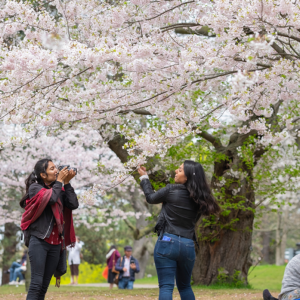The Connection between Nature and Mental Health
The benefits of spending time in nature are endless. Daily contact with nature has a positive impact on our social, psychological and physical health, and is an important factor to keep us connected to our natural environment. In the last few decades humans have become more sedentary, and less inclined to spend time in nature. This is causing a disconnect with nature, and with our own well-being.
How nature affects mood
The National Collaborating Centre for Environmental Health reports that there are several pathways by which time in nature improves mood- by reducing stress both physiologically and through attention restoration, by increasing physical activity and by increasing social contact with others.[i] Additionally, scientists have demonstrated changes in brain activity and reduced rumination following a walk in nature. Rumination is a preoccupation with negative thoughts and is associated with depression.[ii] Participants of the David Suzuki 30×30 challenge (30 minutes daily for 30 days) reported better moods, more energy and vitality as well as increased fascination ( which is researcher speak for a sense of awe and affinity with the natural world).[iii]
Take that black dog for a walk in the woods
Winston Churchill suffered from periods of depression or melancholy throughout his life; he referred to this as the “black dog”. Statistically, he was in good company as depression is a common disorder and is considered the leading cause of disability globally.[iv] In Canada over ten percent of youth have had a depressive episode and eight percent of adults will experience depression in their lifetime.[v] But the simple act of spending even short amounts of time in nature can improve moods, even in people who have been diagnosed with a mood disorder.[vi] [vii]
Complementary therapy
This is not to say that nature can replace the traditional pharmacology and psychotherapy treatments for depression. However, it does suggest that everyone, including those who suffer from depression would benefit from access to green spaces. This includes living in proximity to nature; a study in the U.K. of disadvantaged pregnant women found that higher residential greenness was associated with reduced depressive symptoms.[viii]
Quality matters
The benefits of time in nature are proportionate with the quality of the green space, the amount of time spent there and the level of immersion (active, such as green exercise is more effective than passive, say, looking out a window). Therefore, it behooves us to champion the creation and protection of accessible, biodiverse natural areas where we live, work and play.
So whether you have a “black dog” in your life or just had a bad day, think about going outside for a healthy dose of nature!



